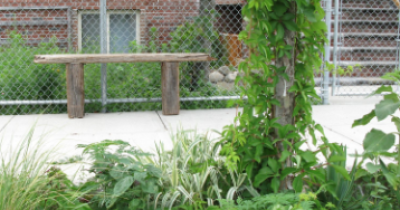WHEN HOME WON’T LET YOU STAY
Exhibition Opening // Ausstellungseröffnung:
04. May 2016, 18:00
Exhibition Duration // Ausstellungsdauer:
Until 25 May // bis zum 25. Mai
Mo-Fr: 13:00 – 18:00
Venue // Ausstellungsort:
Exhibition Center // Ausstellungszentrum Heiligenkreuzer Hof,
REFEKTORIUM & SALA TERENA
Address:
Schönlaterngasse 5,
(another entrance to the venue // bzw. Grashofgasse 3)
1010, Vienna
Welcoming Speech // Begrüßung:
Gerald Bast,
President, University of Applied Arts, Vienna //
Rektor der Universität für angewandte Kunst Wien
Participating artists // Teilnehmende KünstlerInnen:
2+1 (Selda Asal & Özgür Erkök Moroder + Saleh Rozati) | Fatih Aydoğdu | Bernhard Cella | Canan Dağdelen | Omar Imam | Ebru Kurbak | Lorie Novak | Erkan Özgen | Mario Rizzi | Pınar Öğrenci | Hansel Sato | Cengiz Tekin | Aslıhan Ünaldı
Lecture performance:
Mirwais Wakil
Curator // Kuratorin:
Işın Önol
Curatorial Assistant // Kuratorische Assistentin:
Carolina Nöbauer
deutscher Text: siehe unten.
WHEN HOME WON’T LET YOU STAY *
As the twenty-first century unfolds, nationalism is fast losing ground. More and more people believe that all of humankind is the legitimate source of political authority, rather than the members of a particular nationality, and that safeguarding human rights and protecting the interests of the entire human species should be the guiding light of politics. **
Some day, violence breaks out in a particular region, for reasons hard to grasp. They may be related to religious agitation, or violent capitalism, scarce resources, blood-thirsty war profiteers, injustice in the distribution of land, foreign powers or a traumatic past. People seem to have enough reasons to slaughter one another. And we spectators say, this is not humane. And it really isn’t, although this breakdown of civility is experienced by humans again and again.
Later, a million desperate journeys start. Thousands of people leave their homes behind, they set off and hit the gruelling road, embarking in a battle of a different kind. They walk, run, jump over fences, remain hungry for too long, carry the weight of their children, some bare necessities, and few personal memorabilia. They carry all that, and carry on with their journey: This requires a lot of courage, strength, and despair. But people do it: People do it when it is about their survival. Have they already arrived to some safe land? By no means; yet the journey has just begun. Unspeakable abuses take place while on the way, over and over, and by many different offenders. There is no other hope but to keep running away from the in-humane, the relentless evil that has surrounded the vulnerable ones with its cynical void.
It is not that the bystanders wouldn’t react: They get very well organized on short notice, they help make the journeys happen: Often they charge a lot of money, overfill the lifeboats, abduct people into the unknown. Those who quickly understand the new market learn how to produce fake life jackets – soon to be termed “death jackets” – and cause the drowning of hundreds. The dead have no papers, therefore there is no evidence that they once lived. They had no identities anyone would respect. It is the wild; a boundless arena for any kind of crime.
Some make it to the other shore, while thousands don’t. When you talk to the ones who made it, you often hear that they didn’t succeed in their first attempt. It is not the first boat they climbed into that brought them to the other side, or to the deep water of the sea. It takes many tries, again and again, until they can set foot onto some safe shore. Children disappear, get kidnapped, sent on a diverted route to a nameless fate determined by the skilled agents of human trafficking. Limitless violence, strategic cynicism, profiteering, political gameplay, institutional incompetence, moral courage just as much as hostility; chaos, enforced security, paralyzed as well as berserk states. Emergent solidarity and looming collapse of order; gestures of friendliness, and a terrifying sense of loneliness and exposedness – all of these consequences of human actions impinge onto the walking ones, like an endless beating.
Human beings are unbeatable at getting organized, for evil and good: Some indeed feel deeply responsible, hurry to the coasts, assist the ones who made it to the shore, or get organized, to provide shelter, food, clothing, warmth, and other immediate necessities. The journey, from the beginning until the very end, makes apparent many contradictory facets of being human and humane: countless kinds of human hostility and cruelty as well as empathy, generosity and support to extreme extents. The journey requires not only a lot of courage, but also a lot of hope, and a lot of trust in humanity: That there is a land somewhere where they are welcome and safe, and where a new life can start, at least until there is a chance of return.
But in that land, in a different world, those who have never had to experience the preceding catastrophe (or forgot quickly the ones that they experienced in recent history) call the arrival of the refugees a ‘crisis’. The inhabitants of the safe land feel under threat: That their identities would get destroyed, that the cost of hospitality would be too high; that their well-developed systems would collapse; that their humaneness would suffer due to the ignorance of the newcomers – a paradox.
Even more so, had human solidarity been stronger, there would be no nightmare about a crisis, but instead the empowering, rejuvenating experience of a collective power to forge our fate. We deprived ourselves of these collective emotions as soon as we put order over empathy, identity control over encounter, and tactical reason of state over strategic humaneness. In fact, it is not only this most recent crisis that the inhabitants of the safer and wealthier lands have failed to transform into an opportunity for re-forming and rebuilding the structure and atmosphere of their co-existence. After making it through the outer perimeters of the safe and rich territory, the newcomers will have to experience many forms of institutionalized injustice, social inertia and individual isolation that have been maintained and cemented over generations. It will become apparent to what enormous extent the rich societies, too, are stratified, impenetrable, apathetic, and organised as pyramids of increasing exploitation.
On the 3500-kilometer journey from a now deserted home in Aleppo to Vienna, a Syrian refugee has to witness and endure the state of humanity and humaneness in our time. By trying to perceive the world through the eyes of someone who sets off to seek refuge, an unmasking prospect unfolds – of devastating human experiences, of a catastrophe emerging from an endless chain of atrocities and neglect; but also of support and empathy. The exhibition “when home won’t let you stay” focuses on these astonishingly varied shades of humanity and examines the notion of humaneness in the early 21st century. It interrogates what it means to be human today, in contrast to the ideals of humaneness and human rights. The exhibition asks about the possibilities of socio-economical and political developments towards a more conscious co-existence; not only so as a temporary solution to this immediate catastrophe – the so-called refugee crisis – but also as a confrontation with our individual and communal approaches to being human.
Borrowing its title from a line of the poem Home by Warsan Shire, the exhibition attempts to elucidate the journeys of the displaced between their lost homes and the new ones that will have to be built.
Text by: Tobias Nöbauer & Işın Önol
http://www.dieangewandte.at/jart/prj3/angewandte/main.jart?rel=de&content-id=1229508255634&aktuelles_id=1457618551733&reserve-mode=active




